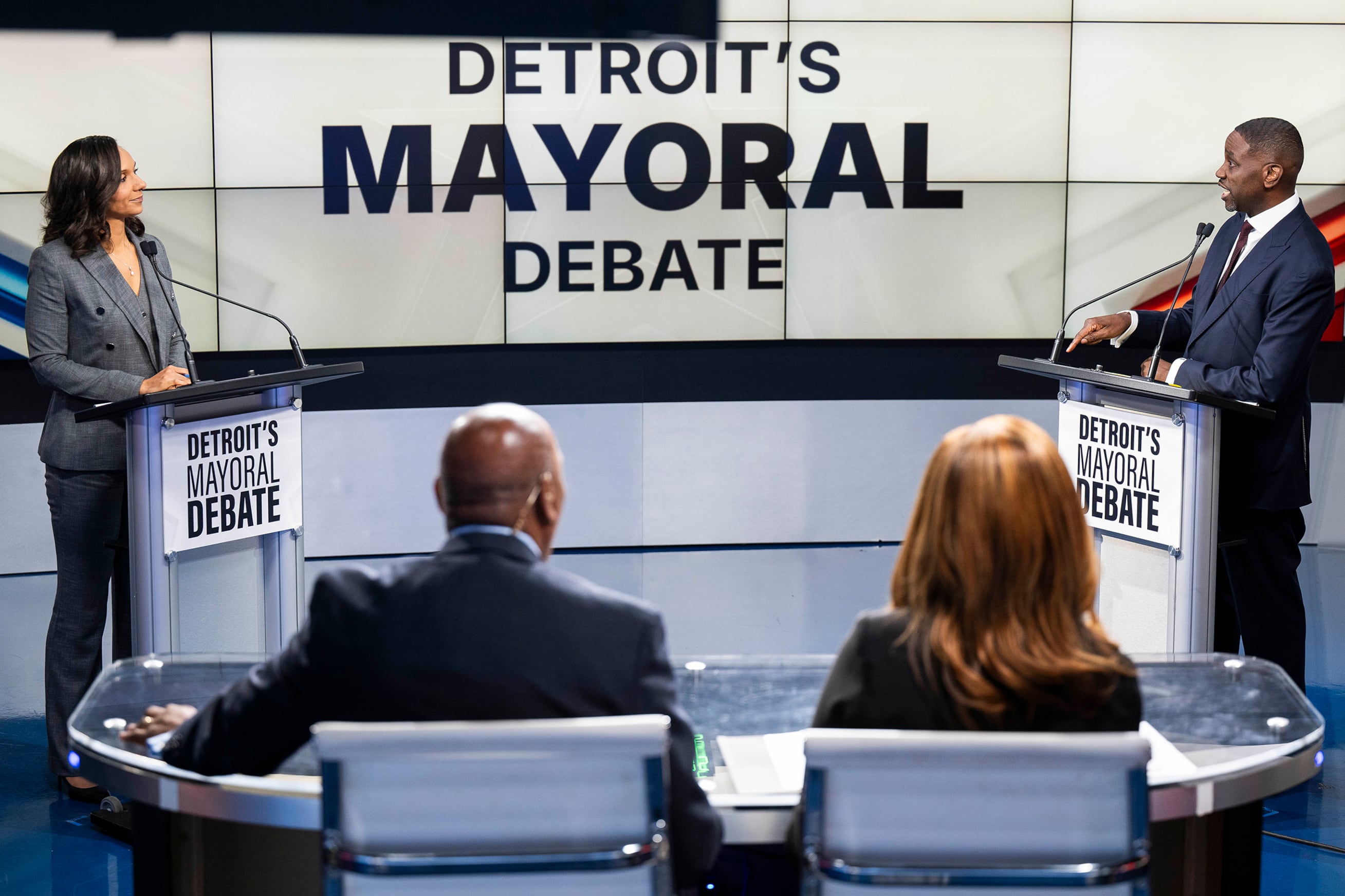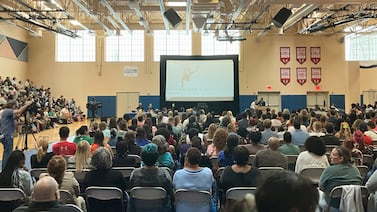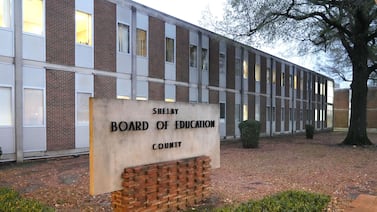Sign up for Chalkbeat Detroit’s free newsletter to keep up with the city’s public school system and Michigan education policy.
Detroit’s mayoral candidates may be far apart about how they should solve many of the city’s challenges, but their views on improving education in the city sound similar.
Rev. Solomon Kinloch, Jr., the pastor at Triumph Church in Detroit, and Mary Sheffield, the president of the Detroit City Council, faced off Wednesday night during a televised debate on WXYZ-TV. Moderators asked one question about education, but related topics such as child poverty, transportation, and safety also came up.
Education has been an issue throughout the campaign because of the depth of Detroit’s school challenges. Low academic achievement and high rates of chronic absenteeism are big problems in district and charter schools. While the mayor doesn’t have control over how schools are operated, the person elected can play a role in addressing many of the barriers that make it difficult for children to learn, including housing instability, a lack of transportation, and extreme poverty.
Here’s what they had to say at Wednesday night’s debate.
How will the candidates help improve education in Detroit?
Moderator Carolyn Clifford noted the city’s high rate of illiteracy and the most recent results for the Detroit Public Schools Community District on the National Assessment of Educational Progress, in which just 5% of district students were proficient or above in reading. Noting that the mayor has no control over district and charter schools in the city, she asked the candidates, “What can a mayor do to help ensure Detroit kids can read, can learn, and succeed?
Kinloch repeated what he’s said throughout the campaign: that he would “be an educational mayor” and would create a cabinet-level position that would partner with the school district. Though the city has dozens of charter schools, Kinloch only mentioned partnering with the district. Kinloch said that while “the school district is not the mayor’s job, it’s still the mayor’s responsibility.”
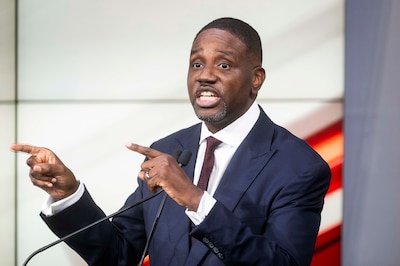
“What we will do is partner with the district to make sure that we’re removing the social ills that keep the children from showing up in class in a productive way, not to just to survive, but to thrive. There are a whole lot of things that take place before those children get to class. And so we got to make sure that they have access to mental health professionals, that they have access to affordable housing, that they have access to food and grocery stores and healthy eating, that they have access to extra curriculum activities to keep them off the street and give them a sanctuary to be safe.”
Sheffield said she believes the mayor “can be a greater partner to drive better outcomes for our youth” and that every child deserves access to a quality education.
“My administration will have a liaison working directly with our DPSCD and charter schools on a consistent basis. We will ensure that we have robust after school programming within a two mile radius of every school, focusing in on literacy. We will provide the wraparound service and address the social deterrents that prevent and impact our families and our students, like mental health and housing and having support in the schools and on the grounds to support our families and students. And lastly, as a mayor, I can ensure that we have safe routes to school and fixing the infrastructure around our schools and providing more coordinated transportation to reduce absenteeism and get our students back in school.”
Setting students up for post-high school success
At various points during the debate, Sheffield and Kinloch talked about ensuring that children are set up for success once they leave high school.
Sheffield noted that the Detroit Promise, a scholarship program that gives eligible Detroit residents a tuition-free path to an associate degree, bachelor’s degree, or technical certificate, already provides opportunities for Detroit youth.
“We want to enhance that program and ensure that we’re creating pathways so that everyone who wants to receive secondary education has a pathway to do so,” Sheffield said.
Kinloch made a similar statement.
“I’ll make sure that every child has access to a quality education, giving them a pathway to college and giving them a pathway to a career,” Kinloch said.
Crime may be down, but safety is still an issue
Chalkbeat heard from a number of students earlier this year who said they often feel unsafe in the city, avoid being out in large groups because they fear what could happen, and worry about violence as they travel to and from school. That’s despite crime being down in the city.
At Wednesday night’s debate, candidates were asked how they explain the disconnect between the statistics and what people say in their neighborhoods and what they would do if elected mayor to solve this problem.
Kinloch noted that as a pastor, he has had to “give children dignity in death that they didn’t get in life because their life was taken too soon.”
He said one of the reasons there is a disconnect is “because Detroiters deserve two things. They deserve safety and they deserve justice.” He also suggested that the city is “fudging” crime statistics. BridgeDetroit and the Detroit Free Press reported that after the debate, Kinloch explained his comments, saying there should be additional oversight into how crimes are tracked.
Sheffield noted the reduction in crime stats, but also said “one life lost is still far too many.”
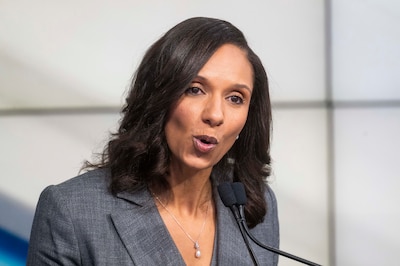
“I believe in a comprehensive and holistic approach to public safety that is rooted in strong partnerships with our law enforcement agencies in our community. I will ensure as mayor that we are investing in prevention, more year round, youth employment for our young people, ensure that we’re expanding our community violence intervention work.”
Her plan also includes launching the city’s first ever office of gun violence prevention and expanding community policing efforts.
Improving public transportation is important
The candidates were asked to explain how they would improve public transit in the city. While the question wasn’t specific to education or students, the city’s transportation woes affect school attendance. Many students take city buses to and from school, and Chalkbeat has heard from students who say the buses frequently arrive late, making them late for school, or don’t show up at all.
Transportation barriers are one of the reasons the DPSCD chronic absenteeism rate is high. The rate is improving, but 60% of students were chronically absent in the 2024-25 school year. At least one DPSCD school is experimenting with distributing bikes to students to make it easier for their children to get to school.
Sheffield said the most pressing issue is addressing public transportation wait times.
“We have to ensure that no one is waiting 30, 40, 50 minutes to catch a bus. And so as mayor, my number one priority is to reduce wait times, increase frequency and reliability of our system, make sure that our drivers are paid the wages that they deserve, and make sure that the system is safe.”
Kinloch said the city needs to ensure it is offering competitive pay to transit workers, has reliable vehicles, and has trained mechanics.
“I remember growing up in the city of Detroit, and the only way I can get from point A to point B is I had to depend on public transportation,” said Kinloch, who said improving the transit system is a necessity. “A lot of our school children are dependent on public transportation. Our family, our community is dependent on public transportation.”
Lori Higgins is the bureau chief for Chalkbeat Detroit. You can reach her at lhiggins@chalkbeat.org.

